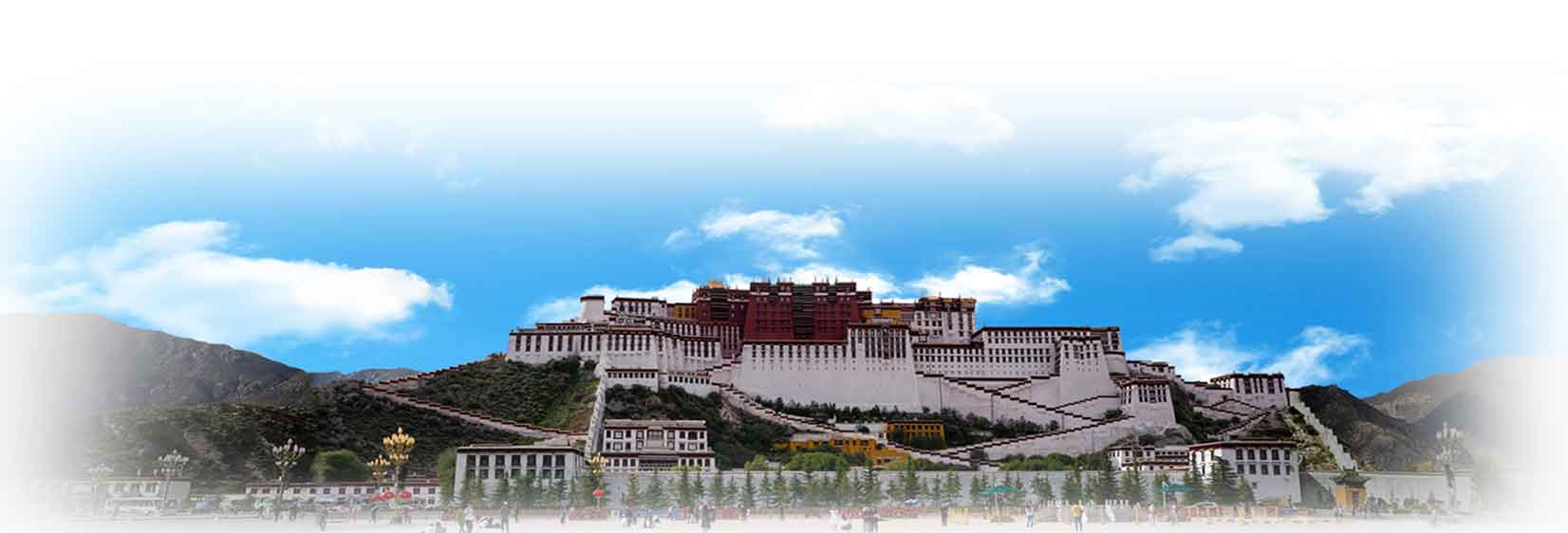སྒྱུ་རྩལ་བ་བསྟན་འཛིན་ཚངས་པ་ལགས་ནི། རྒྱ་གར་ལྷ་ཕྱོགས་མོན་གྷོ་ཌ་འདོད་རྒུ་གླིང་བོད་མིའི་གཞིས་ཆགས་ནས་ཡིན་པ་དང་། ཆུང་དུས་ནས་བོད་ཀྱི་རིག་གཞུང་སྤྱི་དང་ཡང་སྒོས་བོད་ཀྱི་ཟློས་གར་སྒྱུ་རྩལ་ལ་དུང་བ་ཟབ་པའི་དབང་གིས་ཕྱི་ལོ་ ༢༠༡༧ ལོར་བོད་ཀྱི་ཟློས་གར་སྒྱུ་རྩལ་སློབ་གླིང་དུ་འཛུལ་ཞུགས་བྱས། ཁོང་གིས་འདོད་ཚུལ་གཞིགས་ན། སྒྱུ་རྩལ་ནི་སྒེའུ་ཁུང་ལྟ་བུ་ཞིག་སྟེ། དེ་མེད་ན་ཁོས་ནང་རོལ་གྱི་འཇིག་རྟེན་བརྒལ་ནས་ཅི་ཡང་མཐོང་མི་ཐུབ་པར་མ་ཟད། འཇིག་རྟེནགྱིས་ནང་རོལ་གྱི་མི་དེ་ཡང་མཐོང་མི་ནུས་པ་རེད་ཅེས་པའི་སྡོམ་ཚིག་དེར་ཤིན་ཏུ་དད་མོས་བྱེད་བཞིན་འདུག
Tenzin Tsangpa is from Doeguling Tibetan settlement, Mundgod. He joined Tibetan Institute of Performing arts in 2017. He is currently in the fifth year of training.
༡། ཁྱེད་ཉིད་བོད་ཀྱི་ཟློས་གར་སྒྱུ་རྩལ་ཆེད་ལས་ཁང་དུ་འཛུལ་ཞུགས་གནང་རྒྱུའི་བསམ་བློའི་ཤུགས་རྐྱེན་དེ་གང་ནས་བྱུང་བ་ཡིན་ནམ།
བསྟན་འཛིན་ཚངས་པ། རོལ་དབྱངས་དང་ཞབས་བྲོའི་དོ་དབྱིངས་ཀྱིས་ང་རང་བོད་ཀྱི་ཟློས་གར་ཚོགས་པར་ཞུགས་འདོད་ཀྱི་སྤྲོ་སེམས་སྦྱིན། ཆུང་དུས་ནས་རྒན་རབས་ཚོའི་བཀའ་དྲིན་ལ་བརྟེན་ནས་མཛེས་སྡུག་ལྡན་པའི་བོད་ཀྱི་སྲོལ་རྒྱུན་གླུ་གཞས་སྣ་ཚོགས་སྟོན་པ་དང་ངའི་སྤོ་ལགས་དང་རྨོ་ལགས་ཀྱིས་བོད་ཀྱི་གླུ་གཞས་འཚོལ་སྡུད་བྱས་པ་ཧ་ཅང་མང་པོ་ཡོད་སྟབས་ཁོང་གིས་རྒྱུན་དུ་སློབ་ཁྲིད་བྱས་ཏེ་གཞས་ཚིག་གི་ནང་དོན་ངོ་སྤྲོད་གནང་བ་དང་། དགོང་མོ་རེ་རེར་ང་ཚོ་དང་ལྷན་དུ་གླུ་གཞས་ལེན་ནས་བསྡད། ཉིན་ཞིག་ང་ཚོའི་སློབ་གྲྭའི་གཞས་དགེ་རྒན་གྱི་དྲུང་ནས་སྒྱུ་རྩལ་སློབ་མ་གསར་འདེམས་བྱ་རྒྱུའི་གནས་ཚུལ་ཐོས་བྱུང། ང་རང་དེར་ཞུགས་འདོད་ཡོད་པའི་སྤྲོ་སྣང་སྐོར་སྤོ་ལགས་སུ་ཞུས་པས་ཁོང་ཐུགས་མཉེས་པོ་བྱུང་སོང་། རྗེས་སུ་ངས་དེར་ཚོད་ལྟའི་ཡིག་རྒྱུགས་བཏང་རྗེས་འདེམས་སྒྲུག་བྱུང་། ཟློས་གར་གྱི་སྒྱུ་རྩལ་པ་ཞིག་ཏུ་གྱུར་བ་ནི་ཕུགས་འདུན་མངོན་འགྱུར་བྱུང་བ་རེད།
Q1: What inspired you to give an audition at Tibetan institute of Performing Arts?
Tenzin Tsangpa: My passion for music and dance has drawn me into TIPA. Since a child, I have been exposed to various beautiful Tibetan traditional songs by the grace of my grandparents. My grandparents had a great collection of Tibetan songs, and they have always made sure to teach and let me understand the song lyrics where we would sing along every night. One day, I heard about the audition from my music and dance teacher at school. I told my grandfather about my interest the next day. He was more thrilled than I was when he heard about the news. I then auditioned and fortunately got selected. Being a TIPA artist was a dream come true.
༢། ཁྱེད་ཀྱི་བསམ་པར་ཇི་ལྟར་བྱས་ན་བོད་ཀྱི་རིག་གཞུང་མི་ཉམས་རྒྱུན་འཛིན་དང་སྲུང་སྐྱོབ་བྱུ་རྒྱུའི་ཐད་ནུས་པ་དམིགས་བསལ་ཞིག་འདོན་ཐུབ་ཀྱི་རེད་དམ།
བསྟན་འཛིན་ཚངས་པ། ངས་བོད་ཀྱི་རོལ་དབྱངས་ལ་སྤྲོ་སེམས་འཁོལ་བའི་ངང་ནས་ང་ཚོའི་བོད་ཀྱི་སྲོལ་རྒྱུན་རིག་གནས་དང་རིག་གཞུང་ཉར་ཚགས་བྱེད་པར་ཕན་ཐོགས་ཡོད་པ་ཤེས་བཞིན་དུ་དགའ་སྤྲོ་ཚད་མེད་སྐྱེས་བྱུང། མི་སྒེར་ཞིག་ཡིན་པའི་ཆ་ནས་ང་རང་ཉེ་འགྲམ་གྱི་མི་ཚང་མར་བོད་ཀྱི་རོལ་དབྱངས་ཤེས་སུ་འཇུག་རྒྱུར་དགའ། ཟློས་གར་གྱི་སྒྱུ་རྩལ་པ་ཞིག་ཡིན་པའི་ཆ་ནས་ང་ལ་བོད་ཀྱི་རོལ་དབྱངས་བརྒྱུད་ནས་བོད་ཀྱི་ལོ་རྒྱུས་ཀྱི་ཤེས་བྱ་དེ་འདྲ་མང་པོ་ཞིག་སློབ་སྦྱོང་བྱ་རྒྱུའི་གོ་སྐབས་བྱུང་། དེས་འཕྲལ་ཕུགས་གཉིས་ཀར་རིག་གཞུང་བརྒྱུད་སྤེལ་བྱ་རྒྱུར་ཕན་ཐོགས་བྱུང་།
Q2: How best do you think you could make a difference for preserving Tibetan tradition and culture?
Tenzin Tsangpa: It is an immense pleasure knowing that my passion for Tibetan music could contribute to preserving our Tibetan tradition and culture. As an individual, I like to make everyone around me aware of Tibetan music. Being an artist at TIPA gave me a lot of opportunities to explore different forms of Tibetan music and I got to learn so much information about the Tibetan history through music, with the knowledge that I have learnt so far and yet to learn can help me spread awareness and preserve our culture.
༣། བོད་ཀྱི་རིག་གཞུང་འཁྲབ་སྟོན་སྒྱུ་རྩལ་ནང་ནས་ཁྱེད་ཀྱི་ཆེས་དགའ་ཤོས་གང་ཡིན་ནམ། རྒྱུ་མཚན་ཅི་ཕྱིར།
བསྟན་འཛིན་ཚངས་པ། ང་རང་རོལ་མོ་དང་ཞབས་བྲོའི་ཁྲོད་ཀྱི་སྒྱུ་རྩལ་སྣ་ཚོགས་ལ་དགའ། ཡིན་ནའང་གལ་ཏེ་ངས་གཅིག་གདམ་གསེས་བྱས་ན། བོད་ཀྱི་སྒྲ་སྙན་དཀྲོལ་རྒྱུའི་ནི་ང་རང་ཆེས་དགའ་བའི་བྱ་བ་ཞིག་ཡིན། ལོ་བཅུ་ལ་སོན་དུས་ངས་སྒྲ་སྙན་དཀྲོལ་འགོ་བརྩམས། དེ་ནི་ངས་ལག་པ་བསྲིངས་པའི་དཔྱད་ཆས་དང་པོ་ཡིན། བོད་ཀྱི་སྒྲ་སྙན་གྱི་ང་ལ་སྤྲོ་སྣང་གིས་ཁེངས། བྱ་བ་འདིས་ང་ལ་ལྷིང་འཇགས་དང་སྤྲོ་སྣང་སྟེར་ཐུབ།
Q3: Which performing art form, you love the most. Why?
Tenzin Tsangpa: I like all sorts of art in music and dance. But if I get to choose one, playing dranyen (Tibetan lute) is something I enjoy doing the most. At the age of ten, I started playing dranyen. It was the first instrument I ever laid my hand on. The sound of dranyen is pleasant and soothing. It makes me calm and happy. It is also very convenient to carry the Tibetan lute.
༤། ཁྱེད་ཀྱི་མིག་དཔེ་བཟང་ཤོས་འདི་སུ་ཡིན་ནམ། རྒྱུ་མཚན་གང་གི་ཐད་ནས་ཡིན་ནམ།
བསྟན་འཛིན་ཚངས་པ། ངའི་མིག་དཔེ་ནི་ངའི་སྤོ་ལགས་ཡིན། ངའི་ཨ་མྱེས་ཀྱིས་ང་ལ་བོད་ཀྱི་རོལ་དབྱངས་ངོ་སྤྲོད་བྱས་པས་ངས་ད་དུང་ཁོང་གི་སྐད་སྒྲ་དེ་གཉིད་མ་ཁུག་པའི་སྔོན་གྱི་དགོང་མོ་རེ་རེར་རྒྱུན་དུ་གླུ་དབྱངས་ལེན་བཞིན་ཡོད་པ་དེཕྱིར་དྲན་དང་བློ་ལ་ངེས། ཁོང་ནི་སེམས་བཟང་ཞིང་ལས་ལ་བརྩོན་པའི་མི་ཞིག་རེད། ངས་ཁོང་གི་བཟོད་བསྲན་ལྷོད་མེད་ཀྱིས་ང་ལ་འཚོ་བའི་ཁྲོད་དུ་སྤྲོ་སྣང་སྟེར་བའི་རོལ་དབྱངས་ཀྱི་གལ་ཆེན་རང་བཞིན་སློབ་ཁྲིད་བྱས་ཡོད། ངས་ཁོང་གི་ལུས་པོ་སྟེང་ནས་རང་ཉིད་བསྒྱུར་བཀོད་བྱུང་བར་ཡིད་ཆེས་བྱེད་ཀྱི་ཡོད།
Q4: Who is your role model and why?
Tenzin Tsangpa: My role model is my grandfather. I fell for my grandfather passion for Tibetan music that made me fond of music. My grandfather introduced me to Tibetan music and I can still recollect and remember his voice that he used to sing every night before sleeping. He is kind-hearted and a very hard-working person. I owe his tireless patience in teaching me the importance of music that brings joy in life and I foresee transforming myself in him.
༥། ཁྱེད་ཀྱི་མ་འོངས་པའི་ཕུགས་འདུན་ནམ་དམིགས་ཡུལ་ཅི་ཞིག་ཡིན།
བསྟན་འཛིན་ཚངས་པ། ངའི་མ་འོངས་པའི་དམིགས་ཡུལ་ནི་ཆེད་ལས་སྒྱུ་རྩལ་པ་ཞིག་ཏུ་འགྱུར་རྒྱུ་དང་། སྒྲ་སྙན་དཀྲོལ་གཏོང་སྒྱུ་རྩལ་ཆེད་ལས་པ་ཞིག་བྱས་ནས་འཛམ་གླིང་གི་གར་སྟེགས་སྣ་ཚོགས་བེད་སྤྱོད་བྱས་ཏེ་སྒྲ་སྙན་གྱི་མཛེས་སྡུག་ལྡན་པའི་དཀྲོལ་གཏོང་ལ་ངོས་འཛིན་གསར་པ་ཞིག་བྱེད་དུ་འཇུག་རྒྱུ་དེ་ཡིན། དེ་ལྟར་བྱས་ན་ངས་རང་གི་སྤྲོ་སེམས་ལོངས་སུ་སྤྱོད་ཐུབ་པ་མ་ཟད་ང་ཚོའི་བོད་ཀྱི་རིག་གནས་ལ་གཅེས་སྤྲས་དང་ཉར་ཚགས་ཀྱང་བྱེད་ཐུབ།
Q5: What is your future Goal?
Tenzin Tsangpa: My future goal is to become a professional artist and be an expert in dranyen so that I can use the platform to create awareness about the beauty of dranyen all around the world. In this way I can not only enjoy my passion but also treasure and preserve our Tibetan culture at the same time.









